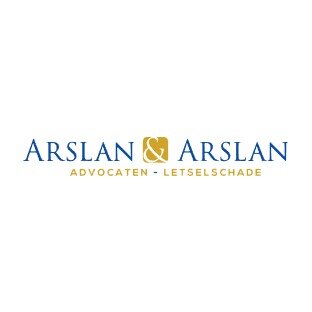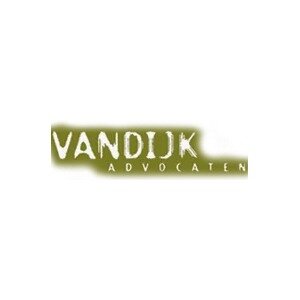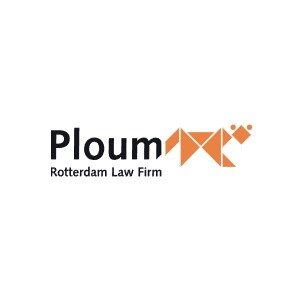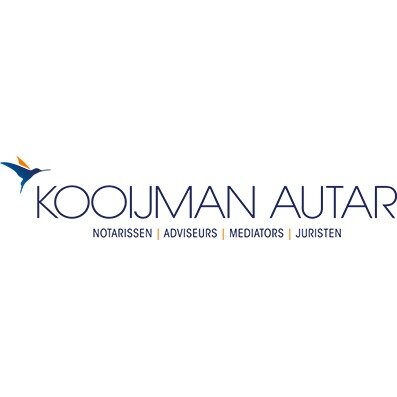Best Funds & Asset Management Lawyers in Rotterdam
Share your needs with us, get contacted by law firms.
Free. Takes 2 min.
List of the best lawyers in Rotterdam, Netherlands
About Funds & Asset Management Law in Rotterdam, Netherlands
Funds and asset management law in Rotterdam, and the wider Netherlands, refers to the legal framework that governs the creation, operation, regulation, and administration of investment funds and asset management activities. Rotterdam is a key financial and logistics hub benefiting from the Netherlands’ reputation for a stable, investor-friendly legal environment. As the Dutch financial industry has grown, Rotterdam has become home to a robust network of investment funds, private equity structures, and multinational asset managers serving corporate, retail, and institutional clients. Dutch law provides clear regulations for both domestic and international fund structures, ensuring transparency and investor protection.
Why You May Need a Lawyer
Seeking legal advice in funds and asset management is not only for large institutions. Individuals, startups, and seasoned investors may require professional legal support for several reasons:
- Establishing or structuring private and public investment funds
- Navigating the licensing and regulatory approval processes from the Dutch Authority for the Financial Markets (AFM)
- Ensuring compliance with Dutch and EU regulations, including Anti-Money Laundering (AML) and Know Your Customer (KYC) rules
- Drafting, reviewing, or negotiating fund documentation and management agreements
- Advising on cross-border investments and tax implications
- Assisting with mergers, acquisitions, or restructuring of funds and asset portfolios
- Handling disputes or regulatory inspections involving asset managers or investors
Early legal counsel can help prevent costly mistakes, ensure compliance, and optimize your investment strategy.
Local Laws Overview
Rotterdam, as part of the Netherlands, operates under a regulatory system shaped by both national and European Union law. Key aspects relevant to funds and asset management include:
- Financial Supervision Act (Wet op het financieel toezicht - Wft): Sets the framework for the supervision of financial markets and institutions, including asset managers and fund operators.
- AFM (Authority for the Financial Markets): The Dutch regulatory authority responsible for licensing, supervision, and enforcement of rules concerning financial products and asset managers.
- Alternative Investment Fund Managers Directive (AIFMD) & Undertakings for Collective Investment in Transferable Securities (UCITS): EU directives implemented in Dutch law, affecting fund operations, marketing, and management.
- AML and KYC Regulations: Strict requirements for fund managers to identify and verify clients to prevent illicit financial activities.
- Corporate Governance Codes: Fund managers are expected to adhere to best practices around transparency, risk management, and investor relations.
- Taxation: The Netherlands offers favorable tax treatment for certain fund vehicles but requires careful structuring to comply with both domestic and international tax laws.
Frequently Asked Questions
What kinds of investment funds can be established in Rotterdam?
The Netherlands allows various fund types, including open-ended and closed-ended funds, retail and professional investor funds, and vehicles such as mutual funds (fonds voor gemene rekening), limited partnerships, and investment companies (NV or BV structures).
Do I need a license to manage a fund in Rotterdam?
Yes. In most cases, managing or marketing investment funds in Rotterdam requires a license from the AFM unless a specific exemption applies.
Can foreign investment funds operate in Rotterdam?
Yes, subject to Dutch and EU regulations. Foreign funds often need to register with or notify the AFM, depending on their investor base and fund structure.
What are the main regulatory authorities?
The primary regulators are the Dutch Authority for the Financial Markets (AFM) and De Nederlandsche Bank (DNB), dealing with conduct and prudential oversight respectively.
What are the investor protection rules?
Funds must provide clear information about risks and costs, segregate client assets, and follow strict disclosure and reporting requirements to protect investors.
How do tax rules apply to investment funds?
The Netherlands offers certain tax-advantaged regimes for funds. Tax treatment depends on fund structure, investor type, and cross-border factors. Specialist advice is strongly recommended.
What is required in terms of AML and KYC compliance?
Dutch law mandates comprehensive identity checks, record-keeping, and ongoing monitoring of investors and transactions to mitigate money laundering risks.
Can funds be marketed to retail investors?
Yes, but only certain types of funds (such as UCITS) and only after meeting stringent requirements for transparency, disclosure, and risk management.
How are disputes between investors and managers resolved?
Many disputes are resolved through civil litigation or arbitration. The Dutch Financial Services Complaints Tribunal (Kifid) also offers an alternative resolution channel for certain financial disputes.
What are the penalties for non-compliance with asset management laws?
Penalties can include fines, license revocation, or criminal prosecution for serious offenses such as fraud or money laundering.
Additional Resources
There are several organizations and resources available for those seeking further information or guidance:
- Dutch Authority for the Financial Markets (AFM)
- De Nederlandsche Bank (DNB)
- Netherlands Fund and Asset Management Association (DUFAS)
- Dutch Tax Authorities (Belastingdienst)
- Rotterdam Bar Association (Orde van Advocaten Rotterdam)
- Financial Services Complaints Tribunal (Kifid)
- International law firms and local legal specialists in Rotterdam
Next Steps
If you need legal assistance in funds and asset management in Rotterdam, take these steps:
- Identify your specific needs such as fund formation, regulatory compliance, tax, or dispute resolution
- Gather any relevant documents including fund prospectuses, management agreements, or correspondence with regulators
- Contact a qualified lawyer or legal advisory firm with expertise in Dutch and EU financial law
- Prepare questions in advance regarding compliance obligations, risk management, and tax implications
- Follow through with the advice, implementing compliance measures and documentation as recommended
Timely professional legal help is the best way to protect your investments and ensure full compliance with local and EU laws in the dynamic Rotterdam market.
Lawzana helps you find the best lawyers and law firms in Rotterdam through a curated and pre-screened list of qualified legal professionals. Our platform offers rankings and detailed profiles of attorneys and law firms, allowing you to compare based on practice areas, including Funds & Asset Management, experience, and client feedback.
Each profile includes a description of the firm's areas of practice, client reviews, team members and partners, year of establishment, spoken languages, office locations, contact information, social media presence, and any published articles or resources. Most firms on our platform speak English and are experienced in both local and international legal matters.
Get a quote from top-rated law firms in Rotterdam, Netherlands — quickly, securely, and without unnecessary hassle.
Disclaimer:
The information provided on this page is for general informational purposes only and does not constitute legal advice. While we strive to ensure the accuracy and relevance of the content, legal information may change over time, and interpretations of the law can vary. You should always consult with a qualified legal professional for advice specific to your situation.
We disclaim all liability for actions taken or not taken based on the content of this page. If you believe any information is incorrect or outdated, please contact us, and we will review and update it where appropriate.












